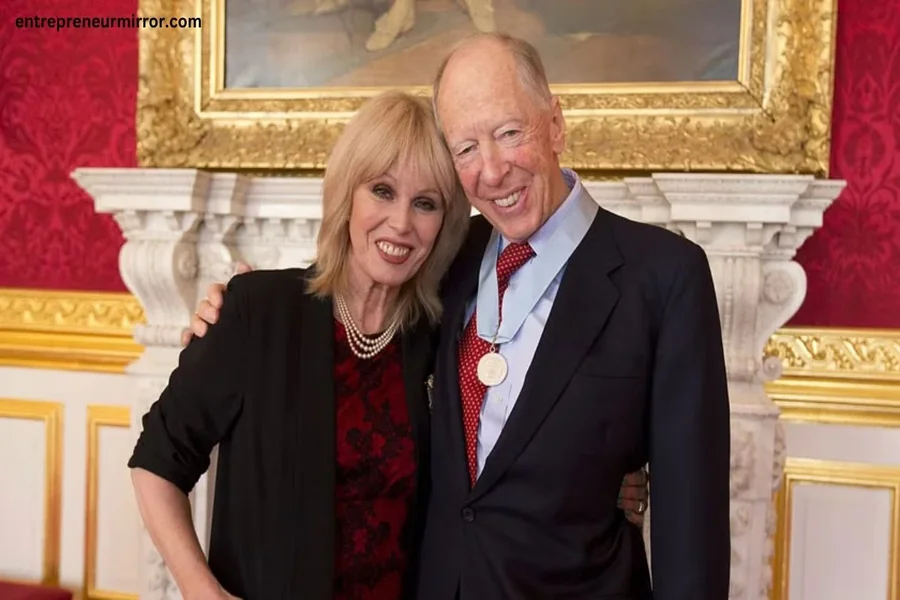The Rothschild banking family is a renowned and influential banking dynasty that has amassed substantial wealth, established financial dominance, and formed numerous global connections. The family has been a source of interest in business, socio-economic activities, and wealth for decades. In this article, we examine the history and influence of the Rothschild family, with a particular focus on the current Rothschild net worth, the family’s financial empire, and their enduring impact on global finance.
Rothschild Family Biography
| Name | Mayer Amschel Rothschild | Rothschild Family Branches | Family Legacy |
| Date of Birth | 1744 | Various, across Europe | Banking, finance, real estate, art |
| Key Contributions | Founder of Rothschild banking empire | Rothschild & Co (Investment Bank) | Major influence in European finance |
| Wealth Estimated | Estimated in billions | Current net worth ranges in the billions | Investments across banking, mining, real estate, and more |
The Rise of the Rothschild Family
Origins: The Rothschilds have their origins in the 1744 birth of Mayer Amschel Rothschild, a Jewish banker born to a Jewish family in Frankfurt, Germany. Shrewd commercial judgment, combined with skill in navigating the complexities of European finance, had paved the way for a fortune that would be passed through many generations. The strategy developed by Mayer was innovative in his time, as he created a network of banking activities in Europe, enabling him to service royal households, governments, and aristocrats. This was one of the factors that contributed to his wealth.
Five sons of Mayer Amschel Rothschild expanded the family business into major cities across Europe, including Frankfurt, London, Paris, Vienna, and Naples. This expansion of banking activities made the Rothschild stakeholder a boss in world finance. By the early 19th century, the Rothschild banking house had emerged as a major contributor to the financing of various European governments and other significant infrastructural developments of the era, including the construction of railroads and other industrial activities.
Although the Rothschild family has diversified its investments, it continues to generate a significant portion of its wealth through banking. The fortunes of the family are currently entwined with several sectors, including real estate, mining, energy, and agriculture. The family has left a legacy, although its banking empire has evolved, and the Rothschild name no longer reigns supreme in the global financial world as it once did.
Rothschild Net Worth: Current Status
It is challenging to determine the exact amount Rothschild has in their bank accounts due to the privacy provisions and complexities of their wealth structure. The Rothschild family is divided into several branches, each with its own investments and financial interests. As a result, pinpointing an exact number for the Rothschild net worth can be a challenge. Nevertheless, the estimated wealth of the Rothschild family is measured in billions of dollars.
A significant portion of the Rothschild fortune is managed through various family-owned financial companies, including Rothschild & Co, a global investment bank. Hedge funds, Private equity, and Asset management are also part of the family, which continues to diversify the income further and remains one of the richest families in Europe.
The Rothschild net worth is not solely tied to banking. The family has diversified into several industries and has successfully adapted to the dynamics brought about by the movement of global finances, ensuring that its fortune continues to grow. However, some estimates place the Rothschild net worth at around $400 billion when considering the combined value of their assets and holdings.
The Rothschild Influence: Financial Giants
With the Rothschild family, financial power extends well beyond the monetary domain: The Rothschilds were also influential in politics, art, and philanthropy. Their interactions with European kings and governments have also played a major role in shaping international politics, such as funding Britain’s war effort against Napoleon during the Napoleonic Wars. The strong linkages that the family had with royal families in Europe enabled them to enter the nobility, becoming financial suppliers to the aristocracy.
The Rothschilds are also known to have made significant contributions to the arts through their art collections and patronage, in addition to their financial acumen. They have also donated to numerous charitable causes, particularly those benefiting the Jewish community and promoting overall welfare. The Rothschilds continue to remain quite prominent in many cultural and philanthropic activities even today.
Although their activities are somewhat secretive, the Rothschilds are still recognized as pioneers of modern finance and participants in major business-related scandals.
Rothschild Family: A Legacy of Wealth and Power
The Rothschild family has been associated with numerous rumors, theories, and speculations, some of which suggest that the family owns or contributes significantly to the overall global wealth. Although this has been greatly sensationalized, there is no doubt that the Rothschild family has a long history in the banking and wealth management businesses. They are among the wealthiest families globally due to their investments in the financial sector and the diversity of their asset portfolio.
Today, the Rothschild family continues to manage a substantial amount of wealth, and the Rothschild net worth remains a topic of interest to those fascinated by global finance. Since the family has diversified into other industries, such as real estate and energy, their sources of wealth continue to expand. However, the family’s financial operations are rather confidential.
Even with considerable wealth, the Rothschilds have not often found themselves in the limelight. Their fortune is discreetly managed, and most of their business transactions are conducted discreetly. However, their influence, both financially and culturally, remains undeniable.
Conclusion
The wealth of the Rothschild family is difficult to calculate accurately, but as it has remained substantial, the family’s financial empire is a significant part of the world’s finance. The history of the family is full of success, influence, and adaptation, and even today, people associate the name Rothschild with power and wealth. Their legacy proves the strength of the banking empire they established and their enduring relevance in the world of finance to this day.
FAQs
What is Rothschild net worth?
The Rothschild net worth is difficult to determine precisely. Still, it is estimated to be in the billions, with some estimates placing the value at around $400 billion when accounting for all their assets and investments.
How did the Rothschild family become so wealthy?
The Rothschild family built their wealth primarily through banking, starting with Mayer Amschel Rothschild, who established banking operations in multiple European cities and expanded his family’s wealth by serving royal families and governments.
Are the Rothschilds still involved in the banking industry?
Yes, the Rothschild family remains actively involved in banking, particularly through Rothschild & Co., which provides investment banking services globally.
What industries do the Rothschilds invest in today?
The Rothschild family has diversified their investments across several sectors, including real estate, mining, energy, and agriculture.
What role did the Rothschilds play in European history?
The Rothschild family played a significant role in European history, notably financing major events such as the British war effort during the Napoleonic Wars and providing loans to various governments.
How much money does the Rothschild family have today?
While exact figures are not publicly available, the Rothschild family’s wealth continues to grow, with estimates placing the Rothschild net worth in the billions due to diversified investments and businesses.
Are the Rothschilds involved in philanthropy?
Yes, the Rothschild family has a long history of supporting charitable causes, particularly in the areas of education, art, and Jewish welfare, through various foundations and initiatives.


